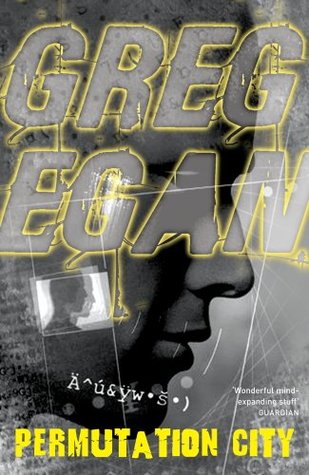More on this book
Community
Kindle Notes & Highlights
Paul counted – and for argument’s sake, tried to defend his own perspective, tried to imagine the outside world actually cycling through fragments of time drawn from ten distinct periods. The trouble was … this allegedly shuddering universe contained the computer which ran the whole model, the infrastructure upon which everything else depended. If its orderly chronology had been torn to shreds, what was keeping him together, enabling him to ponder the question?
But given a large enough collection of truly random numbers, there was no reason to believe that it wouldn’t include, purely by accident, hidden patterns as complex and coherent as the ones which underlay him. And wouldn’t those patterns, however scrambled they might be in real time, be conscious of themselves, just as he’d been conscious, and piece their own subjective world together, just as he had done?
Had the world shrunk to the size of his skull – and vanished from time altogether, except for the fifty computers which contributed at any one time to what he called ‘the present’? Maybe not – although in the eyes of some hypothetical space traveller the whole planet was virtually frozen in time, and flat as a pancake. Relativity declared that this point of view was perfectly valid – but Paul’s was not. Relativity permitted continuous deformation, but no cutting and pasting. Why not? Because it had to allow for cause and effect. Influences had to be localized, travelling from point to point at
...more
Then he whispered, ‘This is dust. All dust. This room, this moment, is scattered across the planet, scattered across five hundred seconds or more – but it still holds itself together. Don’t you see what that means?’ The djinn reappeared, but Paul didn’t give him a chance to speak. The words flowed out of him, unstoppable. He understood. ‘Imagine … a universe entirely without structure, without shape, without connections. A cloud of microscopic events, like fragments of space-time … except that there is no space or time. What characterizes one point in space, for one instant? Just the values of
...more
‘What difference? We perceive – we inhabit – one arrangement of the set of events. But why should that arrangement be unique? There’s no reason to believe that the pattern we’ve found is the only coherent way of ordering the dust. There must be billions of other universes coexisting with us, made of the very same stuff – just differently arranged. If I can perceive events thousands of kilometres and hundreds of seconds apart to be side by side and simultaneous, there could be worlds, and creatures, built up from what we’d think of as points in space-time scattered all over the galaxy, all over
...more
So long as the flesh-and-blood man had no way of knowing the truth, it was meaningless to talk about ‘two different people’ in ‘two different worlds’. The two patterns of thoughts and perceptions had effectively merged into one. If the Copy had been allowed to keep on running after the visitor had learnt that he was flesh and blood, their two paths would have diverged again. But the Copy had been shut down; it had no future at all in its original world, no separate life to live. So the two subjective histories remained as one. Paul had been a visitor believing he was a Copy. And he’d also been
...more


